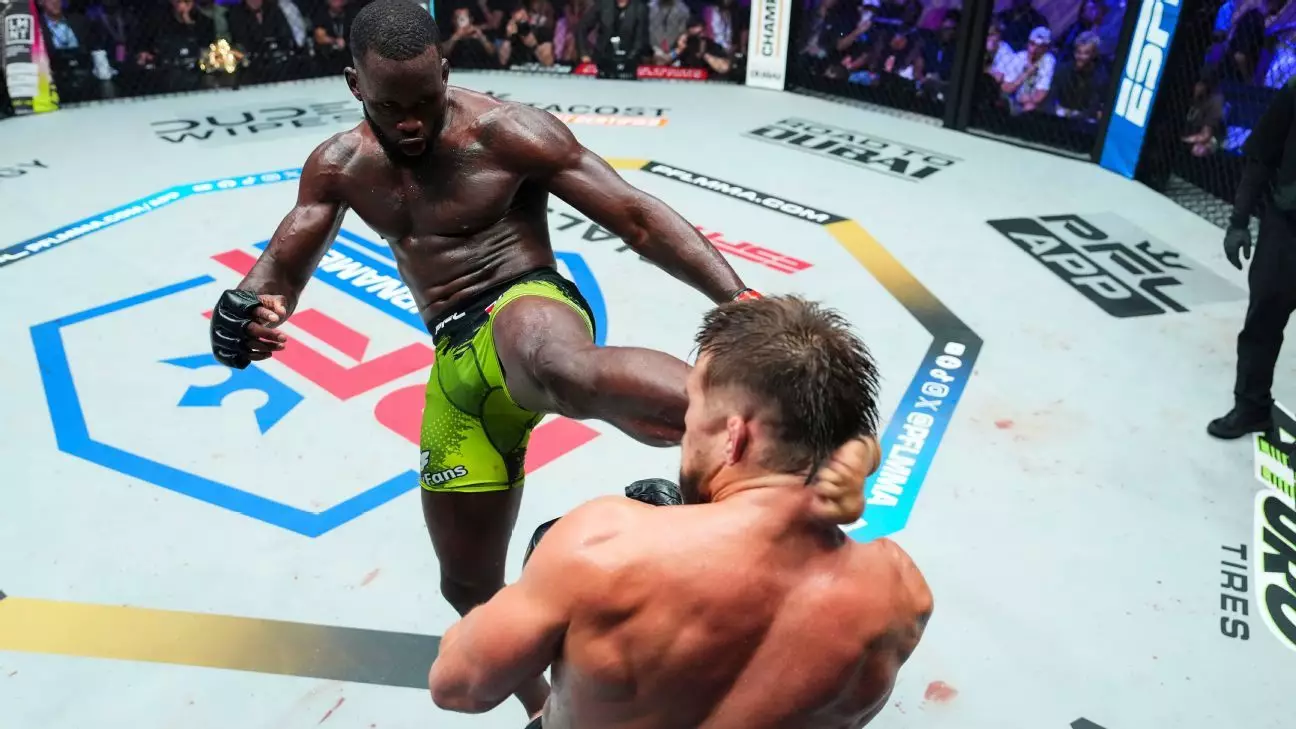Fabian Edwards’ knockout victory at the PFL finals represents more than just a win; it embodies resilience and the relentless pursuit of greatness. Landing a devastating head kick that echoed his brother Leon’s iconic UFC finish reinforces the notion that MMA is a sport of legacy, precision, and calculated risk-taking. Edwards’ journey underscores a critical insight: setbacks in championship pursuits do not define an athlete’s potential but instead offer an opportunity for a comeback story infused with strategic acumen. His ability to withstand Dalton Rosta’s aggressive takedowns in the early rounds highlights a maturation in fight IQ, culminating in a spectacular finish that not only secured a hefty $500,000 purse but also etched his name deeper into the sport’s ongoing narrative of excellence.
Reimagining Knockout Artistry and the Power of Heritage
The striking similarity between Fabian’s decisive head kick and Leon Edwards’s UFC 278 masterpiece raises an intriguing conversation about talent transmission and fighting style evolution within families. These moments transcend individual achievement, serving as symbols of legacy, inspiration, and the raw power of well-timed technique. While some critics might argue that such parallels diminish originality, they inevitably emphasize that mastery and intent in MMA are often passed down and refined through generations. Edwards’s knockout exemplifies how mastery isn’t solely about brute strength but about understanding the subtleties of distance, timing, and precision—elements that make striking truly poetic in its brutality.
Implications for Future MMA Superstars and the Broader Competition Landscape
This victory also signals a shifting paradigm in MMA, where strategic knockout finishes in tournament finals elevate fighters from contenders to legends. As the PFL showcases its talent pool, the resilience demonstrated by fighters like Edwards and others proves that tournaments are not mere competitions of endurance but stages for tactical brilliance. The impressive performances across different weight classes, from heavyweight to light heavyweight, underscore the importance of adaptability and calculated risk-taking in cementing a fighter’s legacy. The rise of fighters like Oleg Popov and Antonio Carlos Jr. further affirms that MMA today rewards not only brute force but also tactical finesse and resilience under pressure.
The Critical Role of Legacy, Technique, and Strategic Adaptation in MMA’s Evolution
In every decisive finish, there exists a narrative of growth, adaptation, and mastery. Fabian Edwards’s victory serves as a reminder that fighters who combine strategic intelligence with relentless determination are paving the way for a new era of MMA—one where technique, heritage, and mental fortitude coalesce into moments of legend. Whether it’s emulating a familial hero’s signature move or forging a distinct path, fighters who understand the deeper mechanics of their craft are the ones who will shape the sport’s future. As MMA continues its evolution into a globally revered sport, victories like Edwards’ highlight the importance of transcending raw power to embrace calculated artistry, ensuring that every fight is a testament to human potential and tactical innovation.


Leave a Reply